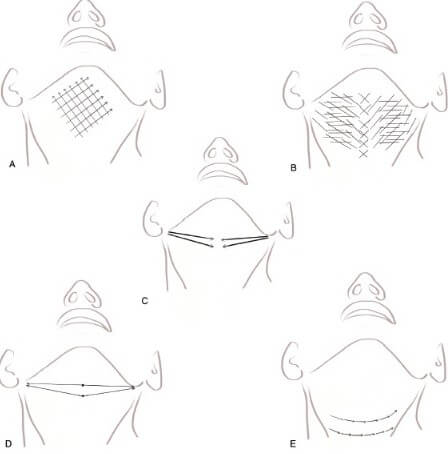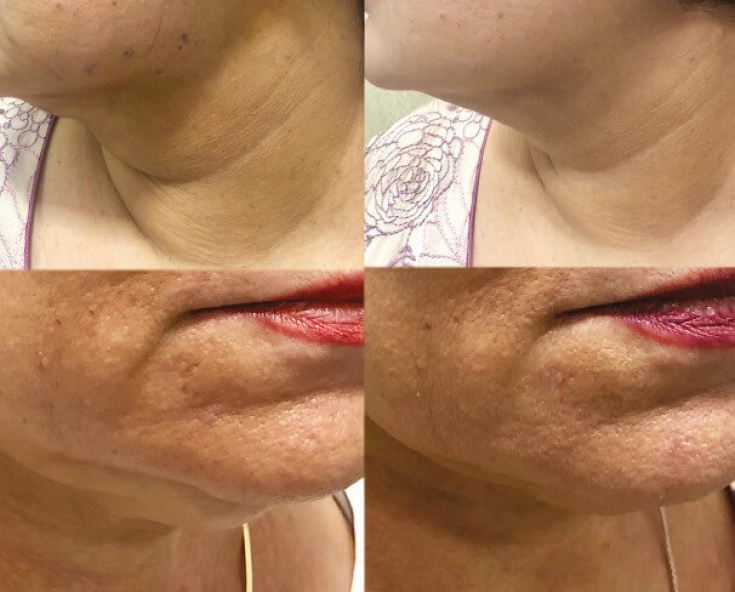Aging is universal and inevitable. The skin also ages in the same way as other organs.
External factors such as sunlight (visible, ultraviolet and infrared), smoking and air pollution, as well as age-related structural changes of bones, ligaments, fat pads, muscles and skin worsen the appearance of the patient.
The neck is a perfect example of how the skin in the open area is affected by all of the above factors, resulting in tissue ptosis and a deterioration in the appearance of the neck.
in recent years has become an excellent alternative to surgical neck lift. On
estet-portal.com read more about this procedure.
- Situation assessment: who is eligible for a neck thread lift
- Selection of threads and technique of their setting for different age-related changes in the neck
- Algorithm of the threadlifting procedure wee Assessment of the situation: who is indicated for a thread neck lift
We can't resist chronoaging, but we can slow it down a bit and make it more elegant.
Structural correction should be aimed at making aging less pronounced, and the tissues of the face and neck more toned.
Before proceeding with the correction of the neck area, it is necessary to evaluatethe severity of age-related changes
, for this a special 5-point scale.

Neck Aging Scale: 0 – no wrinkles, 1 – barely noticeable wrinkles, 2 – small wrinkles, 3 – moderately deep wrinkles, 4 – deep wrinkles with well-defined edges and 5 – very deep wrinkles with excess crease. The most common
signs of neck agingare:
wrinkles on the skin of the neck;- changes in the texture of the skin of the neck;
- platysmal bands;
- double chin.
- Typically, patients with
are advised to start treatment with deoxycholate injection lipolysis followed by threading. Patients with excessive
platysma contouringare best treated with botulinum toxin treatment first followed by thread neck rejuvenationmi.
Neck Thread Lift: Expert's Guidelines for Preparation and Rehabilitation Selection of threads and techniques for their setting for different age-related changes in the neck
When a simple neck rejuvenation is required in terms of
skin texture improvement, it is recommended to use monofilament or PDO screw-threaded threads as these threads improve microcirculation and collagenogenesis, and thus correct skin texture.

Thread setting methods:
- A, B - cross technique;
- C, D- hammock;
- E - linear technique. When volume reduction is required due to a double chin,
are injected using the cross-hatching method. The hammock technique is best used for severe sagging skin to ensure good fixation in the mastoid region.
Linear technique is suitable in cases where a simple increase in volume with threads is required, for example, for correction in the area of "Vene ring
Threadlifting: a minimally invasive non-surgical method of facelift Algorithm of neck threadlift procedure
One hour before the procedure, local anesthesia is administered using
a mixture of prilocaine and lidocaine. To insert the toothed threads, local infiltration was performed using
2% lidocaine with epinephrine 1:200 000. An 18 gauge needle was used to create the entry point. After that, the insertion of the thread was carried out with observance of aseptic precautions.
Read more of our articles onFacebook! After the procedure, patients were administered amoxicillin (625 mg) with clavulanic acid (125 mg) three times a day for 5 days.
Patients were advised not to open their mouths for 48 hours, and to refrain from smoking, vigorous exercise, and beauty treatments for a week.

PDO (
polydioxanone) and PLLA (polylactic acid) threads stimulate fibroblasts, collagenogenesis and neoangiogenesis, thereby improving skin texture and firmness. Repeated sessions
of thread lifting may be required to achieve and maintain the desired result.Thus, threads can be used to improve skin texture as well as eliminate wrinkles and laxity with minimum discomfort
andrecovery time.
Dangers of mesothreads: what complications can arise in the field of thread lifting





